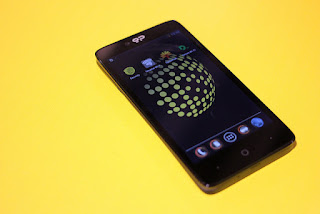 |
|
Image courtesy of Maurizio Pesce at Flickr.com
|
There is no more to it. Privacy and security in communications has to be included within the public and private security plans of organizations and individuals. Silent Circle is a company founded from the need for a new form of digital privacy. It was created in 2011 when Mike Janke, former member of the US Navy; and Phil Zimmerman, creator of PGP (Pretty Good Privacy), met with the idea of developing a new, safer version of Skype.
From this they summoned the other co-founders: Jon Callas, creator of Apple's encryption software, and Vincent Moscaritolo to found the company, in 2014, with the launch of the first phone designed to protect the privacy and digital safety of users. Its name: the BlackPhone.
To reinforce their commitment to the privacy of information, in 2014 they moved their headquarters to Geneva (Switzerland) since this is considered one of the countries with a stronger legislation to protect the privacy of information and, therefore, its customers’.
After four years of operation in Europe and the US, the company committed to emerging markets, targeting Mexico and the rest of Latin America. This is a region that has all elements at play when it comes to security, but there is still work to be done regarding the awareness of risks that exist and how much of the users contributions play a part in being at risk.
Privacy and security in communications must be included within the security plan of organizations and individuals. This initial phase should provoke a cultural and organizational change. Prevention is always the best tool when it comes to crises. The lack of privacy and security can bring financial and reputational losses to both organisations and individuals.
Silent Circle wants to work for the privacy of Latin American markets and their people. They will focus in carrying their message to CEOs or CTOs, as well as the whole society by talking about the risks that exist today in mobile environments. And at the operational level, within organizations, for them to understand the current severity of implementing these policies.
Over the past few years, losses have been reported due to leakages or theft of information equivalent to more than 156 billion dollars. But we should keep in mind that this risk is for companies, organizations and the end consumer. It's not about restricting, but raising awareness and giving people the right tools for them to have a professional and personal balance without losing connectivity or sacrificing functionality.
 |
|
Image courtesy of Jon Callas at Flickr.com
|
Silent OS the operating system which is exclusive to the BlackPhone 2. It is based on Android but it's designed to address the current concerns about the privacy and safety of users. This means there won't be any leakages of information. The operating system gives users control of their personal, work and family privacy without sacrificing their lifestyles.
Blackphone 2 is the device that provides extra levels of security, such as the Security Center to give absolute control over the personal information that apps request on the mobile device.
The potential markets
The company got to Mexico with an aggressive plan. Seeking to consolidate in that country and then opening to other markets in order to meet the needs of digital privacy and security of the region, it includes staffing and business partners that allows them to develop and effectively execute their operations, which in turn directly affects job creation.Thanks to their portfolio, the company works hand in hand with the constant needs of private entities, government or whoever handles sensitive information in a more frequent way that has an impact on their organizations. In addition, at the moment, they believe they have an offer and a solution that penetrates different niches and contemplates the growing need for privacy and security of communications and the information in society. This allows them to position themselves in the various Latin American markets and consumer preferences.

